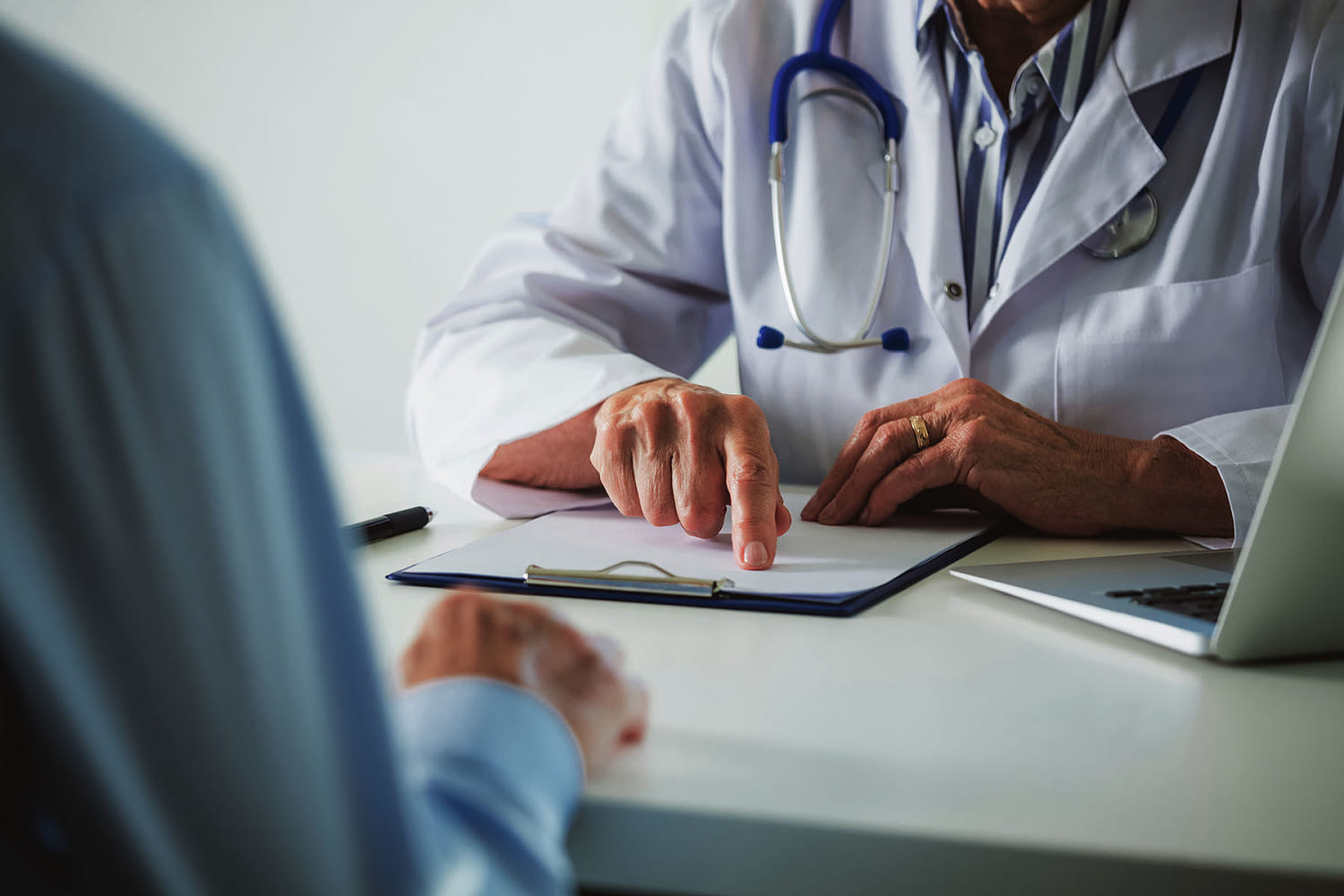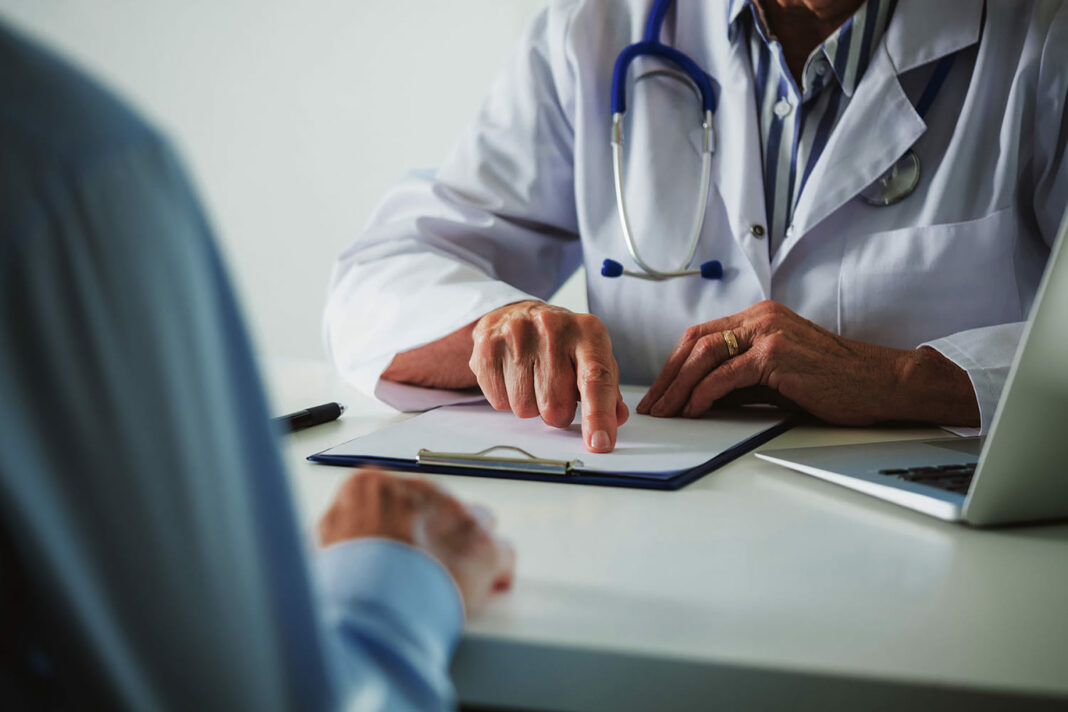
A survey of doctors released Wednesday showed how pervasive medical falsehoods have become — not only online, but also within the walls of medical exam rooms where doctors and patients talk.
The survey from the Physicians Foundationa nonprofit research group, found that 61% of doctors said they encountered patients influenced by misinformation or disinformation a moderate amount or a great deal of the time over the past year.
An overwhelming majority of physicians, 86%, said the incidence of such falsehoods among patients had increased over the past five years, a period that includes most of the Covid pandemic, with 50% saying it had increased significantly.
The survey is a rare look into how often doctors encounter pseudoscience in their everyday practice of medicine, and it indicates how their jobs are changing in response to a new information environment in which distorted health claims spread easily online and sometimes have the backing of government authorities.
Dr. Gary Price, president of the Physicians Foundation, said the organization set out to conduct the survey because it knew doctors were frustrated by medical falsehoods and wanted to find out the extent of the problem.
“It’s frustrating. It’s demoralizing,” he said in a phone interview. “It cuts to the core of what motivates most physicians, and that’s a desire to help people in the most fundamental of ways. And in a way, it’s a repudiation of all the different things that lead people to practice medicine.”
A majority of doctors in the survey, 57%, said they believed misinformation and disinformation had at least a moderate impact on their ability to provide quality care to patients.
Price, a plastic surgeon, said medical falsehoods are making physicians’ jobs harder or, in some cases, impossible. He said one of his patients decided to cancel an operation during the Covid pandemic because the patient refused to take a Covid test, not believing the virus was dangerous.
“Even though you feel personally responsible for your patient’s health and, in many ways, the system holds you responsible for it, you no longer have any reasonable control over the outcome,” he said. For doctors, he added, “that’s a setup for burnout.”
False health claims are widespread, especially on the internet, and they affect a wide array of subjects, from vaccines to dietary supplements. The survey did not ask about specific types of misinformation, but its respondents were a cross-section of the profession: primary care physicians and specialists, early-career doctors and more experienced ones, and doctors in urban, suburban and rural areas. The online survey of 1,002 physicians was conducted in May.
The survey arrives when misinformation appears to be on the upswing, both online and in the federal government. Health and Human Services Secretary Robert F. Kennedy Jr., who has a history of making false or misleading claims about vaccines and other topics, has continued to attack medical research and worry infectious disease experts with his actions and rhetoric since he took office.
Anti-vaccine myths surged on social media ahead of this month’s shooting at the Centers for Disease Control and Prevention headquarters in Atlanta. The gunman blamed a Covid vaccine for his mental health issues, including depression, despite no clear evidence showing a link.
Price said Kennedy and others in authority have a duty to be accurate.
“Public health officials, elected or not, have a fundamental obligation to make sure that the public gets information that’s accurate and that can be trusted and … to continue to ensure that the entire system can be trusted,” he said.
A representative for Kennedy did not immediately respond to a request for comment Tuesday, ahead of the survey’s release.
Dr. Seema Yasmin, a clinical assistant professor of medicine at Stanford University who was not involved in the survey, said the results show the very difficult position that medical professionals are in.
“It’s too much to expect a physician or nurse practitioner, for example, to address complex, deep-seated beliefs in an eight-to-twelve minute consult,” she said in an email.
“Healthcare workers are on the frontlines, they are hearing pseudoscientific statements day in and day out, and it takes great effort to correct these and to provide accurate information to patients, while maintaining relationships in which patients can share things they’ve heard or that they believe,” she said.
Yasmin, author of “What the Fact?,” a book about media literacy and conspiracy theories, said further research could look at how many physicians admit to having fallen for false information themselves.
“Sadly, sometimes our colleagues fall for the falsehoods, too,” she said. “We need to be aware of our own vulnerabilities.”
The Physicians Foundation was founded in 2003 with proceeds from a class action settlement, in which doctors sued health insurance companies over billing practices. It provides grants to universities, hospitals and other institutions for medical research and to address physician well-being.
At least one other survey of physicians has shown similar results. In a 2023 survey by the de Beaumont Foundationa public health organization, 72% of physicians said misinformation had made it harder to treat patients for Covid, and the same share said it had negatively affected outcomes.
Other surveys have shown that misinformation spreads widely among the public. In an April poll, the nonprofit health policy foundation KFF found that 63% of U.S. adults had read about or heard about the false myth that the measles vaccine causes autism.
Price said he would like to see more physicians turn to social media as part of their jobs to counter medical misinformation on the platforms where it often spreads.
“The medical profession needs to get into that channel of communications, but not just by posting studies there,” he said.
“We need to learn how to communicate better in that medium. We’re just way behind. And I think the way I think about it, we need to be just as rigorous about examining the best way to do that as we are at trying to figure out the best ways to do an operation or develop a new medication.”



